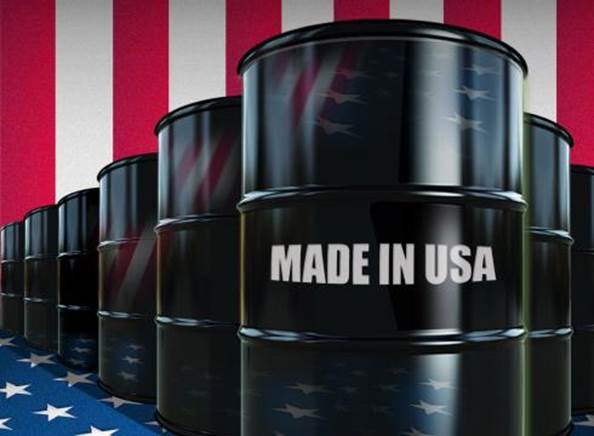Florida must become energy independent by 2020
What will promote human life? What will promote human flourishing — realizing the full potential of life? How do we maximize the years in our life and the life in our years? Answer: cheap and reliable power.
Organic Fossil Fuels are the Lifeblood of Civilization!
Florida’s Governor, Congressional delegation and state legislature must make it their number 1 priority to make the Sunshine State Energy Independent by 2020 or sooner!
Florida:
- Imports all of its natural gas and 99.9 % of its oil.
- Imports all of its refined petroleum based products (e.g. gasoline).
- Is the second largest user of natural gas, Texas being the largest.
According to the U.S. Energy Information Administration:
- Geologists believe there may be large oil and natural gas deposits in the federal Outer Continental Shelf off of Florida’s western coast.
- Florida was second only to Texas in 2014 in net electricity generation from natural gas, which accounted for 61% of Florida’s net generation; coal accounted for almost 23%, the state’s nuclear power plants accounted for 12%, and other resources, including renewable energy, supplied the remaining electricity generation.
- Renewable energy accounted for 2.3% of Florida’s total net electricity generation in 2014, and the state ranked 10th in the nation in net generation from utility-scale solar energy.
- In part because of high air conditioning use during the hot summer months and the widespread use of electricity for home heating during the winter months, Florida’s retail electricity sales to the residential sector were second in the nation after Texas in 2014.
- Electricity accounts for 90% of the site energy consumed by Florida households, and the annual electricity expenditures of $1,900 are 40% higher than the U.S. average, according to EIA’s Residential Energy Consumption Survey.
Even as human populations have grown dramatically and increased their use of fossil fuels, the world has become a much better place.
As CO2 emissions have risen so too have the GDP per person, life expectancy and the population.
Florida politicians are addicted to the precautionary principle (“better safe than sorry”). It is a maxim embraced by government planners and regulators in the Sunshine state at every level. They do not even want to determine what organic fossil fuels lay off of Florida’s coastlines. The precautionary principle worked to stop the building of nuclear power plants in the United States after the 3 Mile Island incident. Today the same tactic is being used to stop off shore drilling using the Deepwater Horizon incident.
Off shore drilling naysayers use the example of the Deepwater Horizon spill to strike fear into the hearts of Floridians. But as FDR said, “The only thing we have to fear is fear itself.” An example of using the fear factor (precautionary principle) is what happened in Japan following the meltdown of a nuclear power plan in Fukushima. The facts are that no one has died from radiation, nor has cancer increased however, 1,600 did die of stress due to the unnecessary evacuation of people from the area.
Fear kills.
What off shore naysayers, fear mongers, don’t tell you is that mother nature is the greatest polluter in the Gulf of Mexico. According to NOAA over 2,500 barrels of oil naturally seeps daily from fissures in the Gulf. This seeping has been going on for tens of thousands of years, yet the Gulf is doing just fine. Would it not be better to capture this oil, and natural gas, than have it continue to seep into the Gulf?
Some argue that even if natural gas is discovered in Florida’s waters that building an on shore natural gas processing plant is not economically feasible or politically doable. There is an answer to this negative with a positive via new technology. Israel is faced with the same concerns about onshore natural gas processing plants. To solve the problem Nobel Energy and Shell Oil have come up with a solution. Process the natural gas using floating plants. According to Robert Sullivan of the New York Times:
It’s called Prelude, and it’s bigger than big. More than 530 yards long and 80 yards wide, it was constructed with 260,000 metric tons of steel, more than was used in the entire original World Trade Center complex, and it’s expected to displace 600,000 metric tons of water, or as much as six aircraft carriers. Even the paint job is huge: Most big vessels dry-dock every five years for a new coat, but Prelude’s paint is supposed to last 25 years. It will produce more natural gas than Hong Kong needs in a year. And it’s so big that you can’t really photograph it, at least not all at once.
[ … ]
What makes this giant liquefied-natural-gas enterprise feasible, paradoxically enough, is the miniaturization its construction represents. It’s much smaller than landlocked equivalents — imagine shrinking your local refinery until it fits on a barge. Shell Oil, which has the biggest stake in the project, describes Prelude as more environmentally friendly than an onshore site. There are no estuaries under threat, no shorelines to run pipe across and reduced risks to population centers, given the explosiveness of natural gas. And it is designed to ride out extreme weather, thanks to three giant 6,700-horsepower thrusters that can turn it into the wind and waves. “These are the things that the naval architects had to worry through,” says Robert Bea, co-founder of the Center for Catastrophic Risk Management, at the University of California, Berkeley. “It works like a big-ass weather vane.”
Environmentalists use the fear factor when talking about drilling for natural gas and oil off of Florida’s shores. The same is true for some of Florida’s Congressional delegation, such as Rep. Vern Buchanan. Fear is not good public policy.
What is good public policy is insuring that Floridians have access to cheap and reliable power in the foreseeable future. Now it the time to take action. Waiting is not an option.
If Governor Rick Scott and Republicans are committed to creating jobs, then they must diversify the economy by promoting energy independence. Energy independence will lead to reduced costs for electricity, gasoline and diversify the economy. That is good public policy.
RELATED ARTICLE: Miami-Dade County school district accepts BP oil spill settlement, sets maximum tax rate


